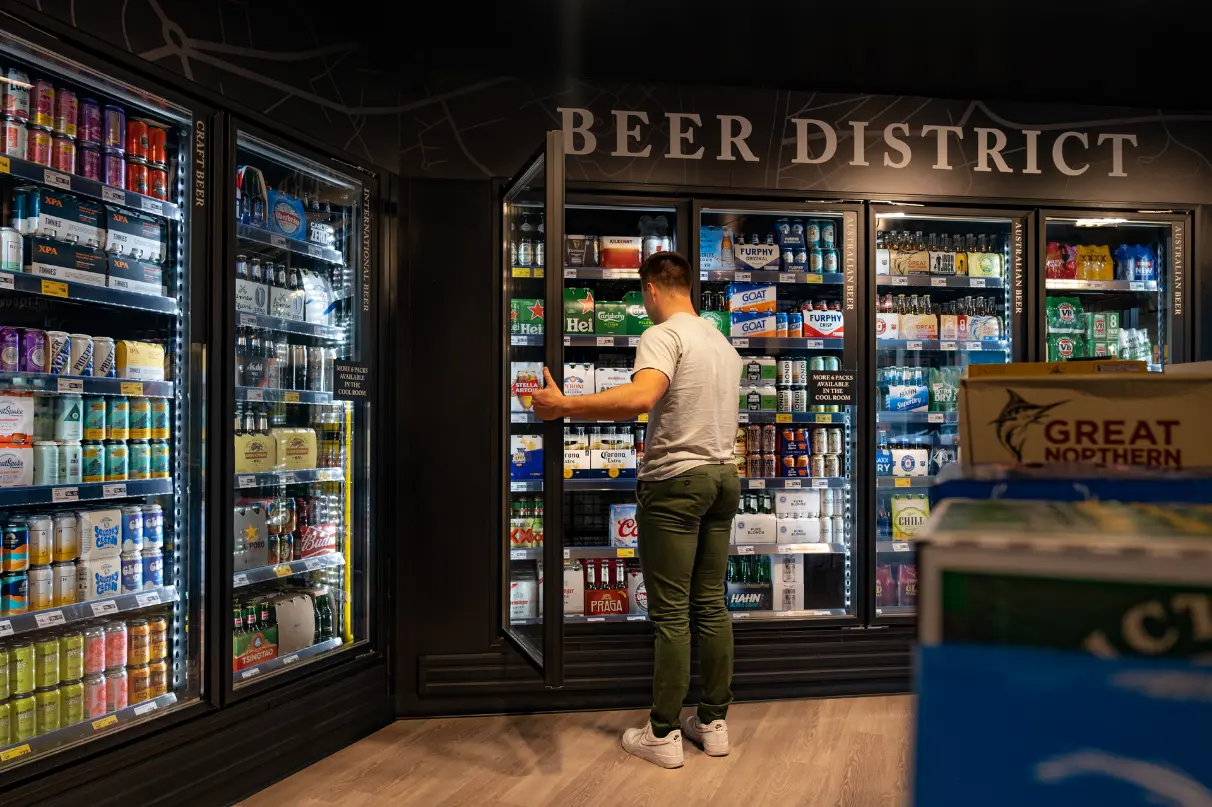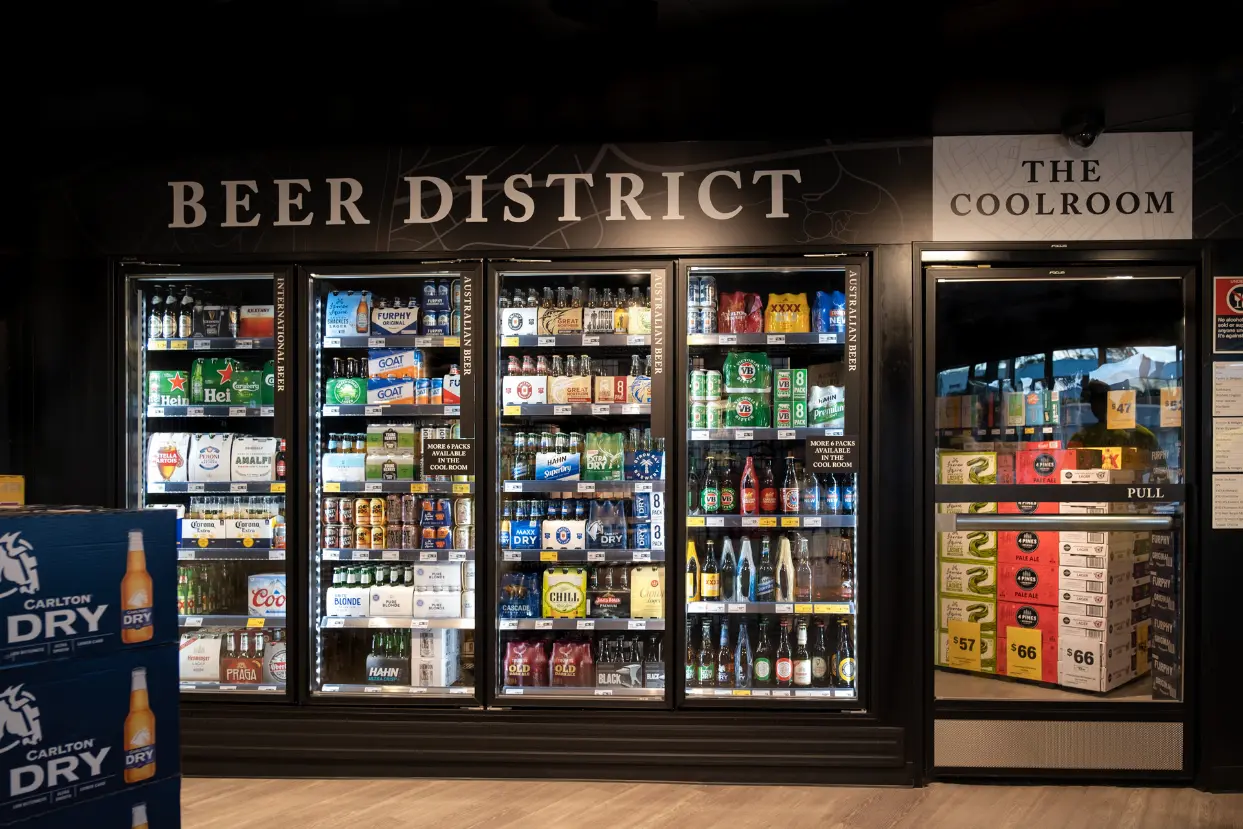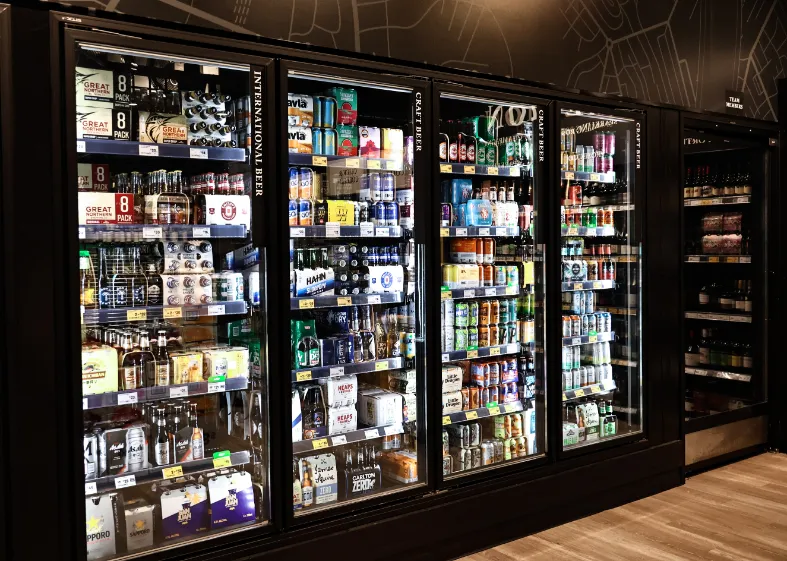Focus Doors is a specialist in manufacturing and installing insert doors, customer entry doors and retrofitting supermarket fridge doors.
With a focus on quality and sustainability, we take pride in using anodised aluminium for all of our products. In this article, we will explore why anodised aluminium is the superior choice and the benefits and differences over powder-coated alternatives.
Understanding Anodised Aluminium
Anodised aluminium is renowned for its stunning beauty and remarkable durability. The anodising process transforms the surface of aluminium, enhancing its natural characteristics, but how does it work?
The Anodising Process Explained
Anodising is an electrochemical process that thickens and toughens the naturally occurring protective oxide layer of aluminium. During this process, aluminium parts are submerged in an electrolytic bath, through which an electric current is passed. This results in the controlled oxidation of the aluminium surface, creating a durable and corrosion-resistant finish. The porous nature of the anodised layer allows for the introduction of dyes and pigments, offering a range of colour options.

Benefits of Anodised Aluminium
Andonised aluminium has a range of benefits including:
- Long-lasting Finish: Anodised aluminium boasts a sleek finish that does not peel or chip. The anodising process integrates the aluminium with its oxide layer, ensuring that it retains its shine and luster for years.
- Enhanced Durability: The hardened surface of anodised aluminium is second only to diamond in terms of durability. This makes it highly resistant to scratches, impact, and general wear and tear.
- UV Resistance: Anodised aluminium does not fade or breakdown under sunlight, making it ideal for applications with high exposure to sunlight.
- Low Maintenance: It requires minimal maintenance, as it does not harbor dust or dirt. It can be easily cleaned with water and mild detergent.
Sustainability and Eco-friendliness
Sustainability is at the core of our values at Focus Doors and we know it is a top priority for our clients when selecting the right materials for their project. Anodised aluminium environmental and sustainability benefits include:
Environmentally Friendly
Anodising is a water-based process that does not involve solvents or volatile organic compounds. This makes it an environmentally friendly option and a reduced carbon footprint over other alternatives.
Recyclability
Aluminium is 100% recyclable without losing quality. Its recycling process is more efficient than producing new aluminium, making it a sustainable choice. The anodised finish does not compromise the recyclability of aluminium, ensuring that products made from this material can be recycled at the end of their lifecycle.
Anodised aluminium combines aesthetics, durability, and environmental sustainability, making it an excellent choice for commercial fridge doors and other applications where quality and appearance are paramount. At Focus Doors, we recognise these benefits and have chosen anodised aluminium as the material of choice for our high-quality fridge doors.
Powder Coated Aluminium: A Comparison
Powder coating involves applying a free-flowing, dry powder to the surface, which is then cured under heat. While powder coating does offer a range of colours, it falls short in comparison to anodised aluminium in several ways. Especially when it comes to durability, colour retention, and environmental impact.

Limited Durability
Powder coating is more susceptible to chipping and scratching compared to anodised aluminium. This is because the powder coating forms a layer on the surface of the aluminium, which can be vulnerable to mechanical damage. In high-traffic areas or environments this can lead to the coating chipping away. This not only affects the aesthetic appeal but also exposes the underlying aluminium to potential corrosion and damage.
In contrast, anodised aluminium has its protective layer integrated with the material, making it more resilient to physical wear and tear, which is essential for high-traffic usage such as in supermarkets.
Fading Over Time
The colours of powder-coated aluminium are prone to fading over time, especially when exposed to UV light. This is because the pigments used in the powder coating can break down under the effects of sunlight and weather conditions.
For fridge doors placed near windows or in areas with exposure to natural light, this can result in a loss of vibrancy and a dull appearance over time. Anodised aluminiumbhas excellent UV resistance, ensuring that the finish remains vibrant and unaffected by sunlight.
Environmental Concerns
The powder coating process is not as environmentally friendly as anodising. Powder coating often involves the use of solvents and can release volatile organic compounds (VOCs) into the atmosphere. These VOCs contribute to air pollution and can have adverse effects on environmental and human health.
Additionally, the powder coating process consumes more energy due to the curing phase, where the coating is baked onto the aluminium at high temperatures. Anodising, being a water-based process, does not release VOCs and is substantially more environmentally friendly.

